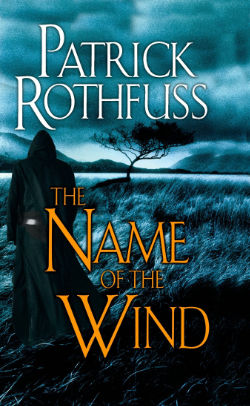 | Patrick Rothfuss
Rothfuss set the fantasy scene on fire in 2007 with his incredible debut The Name of the Wind and stoked the hype fire further in 2011 with the sequel, The Wise Man’s Fear. These two books have singlehandedly earned Rothfuss the title of most exciting up and coming writer in the SFF genre. Millions of people are now begging him to finish the last book in the trilogy. If he does complete this series in the style in which it has begun, Rothfuss will earn himself a place alongside Tolkien, Jordan and Martin as one of the best fantasy writers of all time.
Start with: The Name of the Wind
|
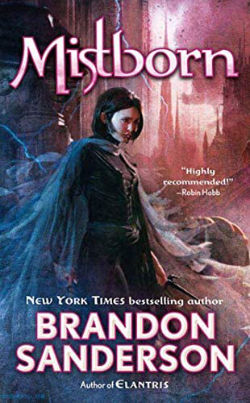 | Brandon Sanderson
Start with his excellent Mistborn trilogy, which represents his best independent work to date, and then move on to the three mammoth tomes in his new epic series The Stormlight Archive, starting with The Way of Kings. Readers also have a soft spot for Sanderson due to his largely satisfactory work completing Robert Jordan’s The Wheel of Time series after Jordan’s untimely death. Sanderson does tend to get a bit distracted, however, having published many stand-alone volumes of fantasy literature. I’m primarily hoping he is able to complete The Stormlight Archive within the next decade or so. If he is able to do so, Sanderson will take his place among the all-time fantasy masters.
Start with: Mistborn: The Final Empire
|
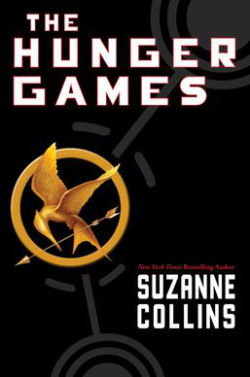 | Suzanne Collins
Collins’ Hunger Games Trilogy represents dark, dystopian satire as good as it gets. It’s been marketed at times as youth fiction, but don’t be fooled — this is incredibly bleak and nuanced stuff, along the lines of George Orwell’s seminal work 1984. It represents biting commentary on our media- and violence-driven society and great science fiction fare. Collins probably needs to write a fair bit more in this genre before she is seen as one of the greats.
Start with: The Hunger Games
|
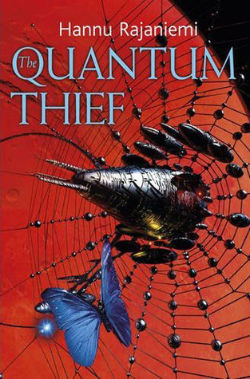 | Hannu Rajaniemi
Rajaniemi’s SF trilogy, starting with the excellent The Quantum Thief, represents some of the best post-human fiction around at the moment, and sits at the intersection of physics, mathematics, computational theory and light cyberpunk thinking. The first book is the best, but the second two are still very solid. Rajaniemi is an author I am watching extremely closely.
Start with: The Quantum Thief
|
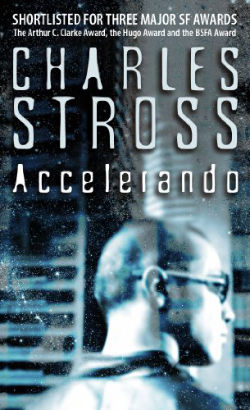 | Charles Stross
Stross is a modern author who has quite a bibliography. I personally really like his novel Accelerando and his Eschaton series, both of which focus on post-human and post-Earth society, especially focused around the technological ‘singularity’ concept. However, I don’t know his latter works as well.
Start with: Accelerando
|
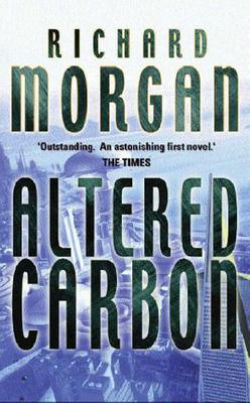 | Richard Morgan
Morgan’s action-packed Takeshi Kovacs books (starting with Altered Carbon) veer between cyberpunk and post-human, post-Earth societies. Great, visionary reading that still contains human emotion. Morgan also has a number of other stand-alone science fiction novels of strong quality. His fantasy series A Land Fit For Heroes is not quite as well regarded.
Start with: Altered Carbon
|
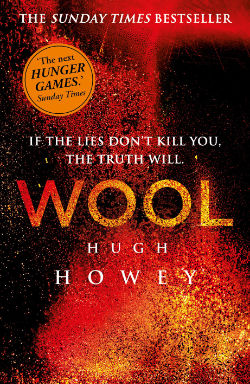 | Hugh Howey
Howey’s dystopian Wool series is an absolute page-turner, as well as being a completely chilling look at a possible post-apocalyptic future of the human race, still beset by all of its frailties and quirks. He’s published quite a bit of follow-up work set in the same universe, as well as diverse other works. I’d rank Howey as one of the most exciting science fiction authors to have emerged over the past decade or so.
Start with: Wool
|
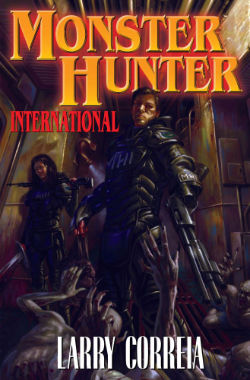 | Larry Correia
It’s got guts, guns, and a boatload of soul. Correia’s Monster Hunter series is for anyone who has ever liked a B-Grade monster movie that turned out to be an absolute classic when you watched it with your mates. Personally I don’t think the author has quite produced his best works yet — I think he has better in him — although his diverse publications so far have been excellent.
Start with: Monster Hunter International
|
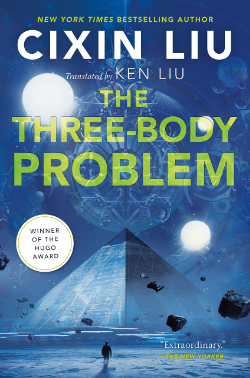 | Cixin Liu
The Doyen of the Chinese science fiction scene, Liu is a sci-fi master of the old school who uses the hard reality of Earth’s vulnerable place in the wider universe as a lens to view social issues of our time — especially when it comes to China’s political and cultural history. Liu’s The Three Body Problem is a masterpiece of the science fiction genre and the two follow-up novels he has published are also amazing. I’d like to see a lot from this modern day author.
Start with: The Three-Body Problem
|
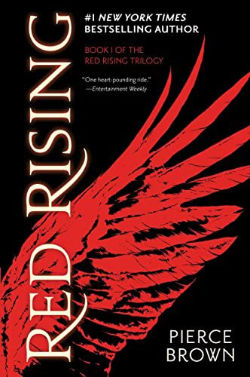 | Pierce Brown
Brown’s 2014 novel Red Rising is one of the best science fiction novels to be published over the past decade. Painting a darkly disturbed picture of a post-human solar system dominated by a Romanesque elite and complete with enslaved masses just itching to rise up in rebellion for a better life, Brown’s canvas is cast with extremely vivid colours. In Red Rising and its successors, Brown creates strong and complex characters that move at breakneck speed through a plot that could have been drawn from any succession story in global political history. I look forward to seeing what Brown can do in future — I think he’s an amazing young writer with a lot more in the tank.
Start with: Red Rising
|
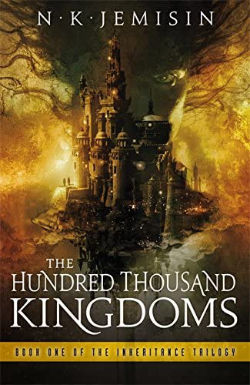 | N. K. Jemisin
Jemisin’s sophisticated, gender- and role-bending novels are mature, adult and fascinating, dealing as they do with the most human of emotions across the spectrum. You’ll find love in Jemisin’s novels, as well as angst. Anger and rage as well as glory and triumph. It’s no wonder the author’s name keeps on popping up at the Hugo awards. I expect to see Jemisin writing increasly awesome and nuanced works for many years.
Start with: The Hundred Thousand Kingdoms
|
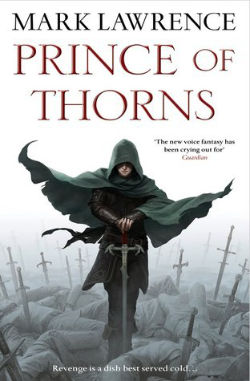 | Mark Lawrence
Lawrence’s debut novel Prince of Thorns — which primarily tell the story of the tortured titular protagonist — can be considered one of the heirs to the ‘grimdark’ legacy which George R. R. Martin has gifted the fantasy genre through his epic A Song of Ice and Fire series. Lawrence’s ‘Thorns’ works are likewise gritty, violent, disturbing, sexy, but also hilarious and human. It’s apparent that Lawrence is gradually revealing a much larger world through his most recent novels. I am very intrigued to see where this series — which appeared to start as fantasy but seems to be becoming a dystopian/science fiction world — is ultimately going.
Start with: Prince of Thorns
|
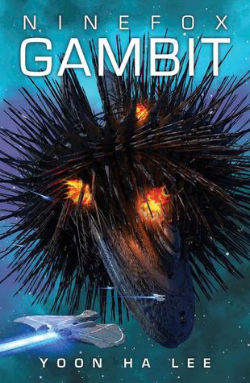 | Yoon Ha Lee
Yoon Ha Lee’s Ninefox Gambit is a little military sci-fi, a little cyberpunk, and a lot awesome. Not all of the conepts which Lee shows the reader are wholly believable, and you have to extrapolate a little to fully get the picture that the author is trying to paint. But if you can accept that, then Ninefox Gambit is a great read. The follow-up novels seem to be of high quality as well. It will be interesting to see if Lee can develop their writing into a much bigger picture.
Start with: Ninefox Gambit
|
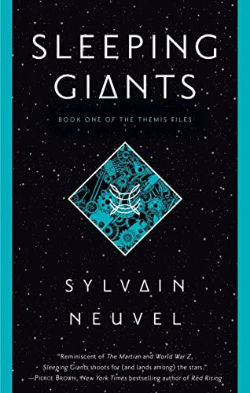 | Sylvain Neuvel
Neuvel’s debut novel Sleeping Giants is a highly enjoyable and accessible novel which builds a human story around the well-worn but still fascinating impact of a piece of alien technology found on Earth. The pair of follow-up novels which Neuvel has written are also excellent. I’d like to see Neuvel next take on a much bigger project in either of the science fiction or fantasy genres.
Start with: Sleeping Giants
|
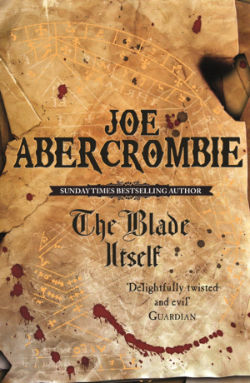 | Joe Abercrombie
Like Mark Lawrence, Abercrombie is an heir to George R. R. Martin’s ‘grimdark’ school of gritty fantasy. I highly enjoyed his First Law Trilogy, which kicks off with The Blade Itself, as well as his standalone revenge story Best Served Cold. I have a feeling Abercrombie has a much larger epic series in him — which I hope to see come out. Possibly with a bit more of a developed magic system than we’ve seen so far.
Start with: The Blade Itself
|
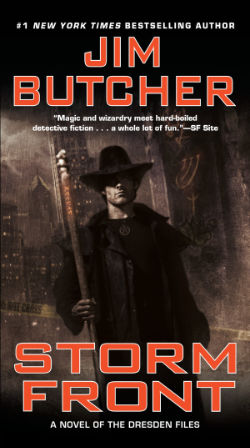 | Jim Butcher
If you like hard-boiled detective stories with a great deal of magic and supernatural nasties built in, then Butcher’s got you covered in spades. His long-running Dresden Files series is just that — and it’s a highly enjoyable and action-packed romp. The only criticism I’d make of Butcher’s work is that it can be a bit pulpy at times, and the author is taking a long, long time (there are 15 novels in the series so far) to reveal the bigger world he is building, as well as the personal journey of the main protagonist, Harry Blackstone Copperfield Dresden. Plus, to be honest, I would at times really like Harry to get a regular girlfriend. I would like him to have a happier life than he has had at times!!
Start with: Storm Front
|
















